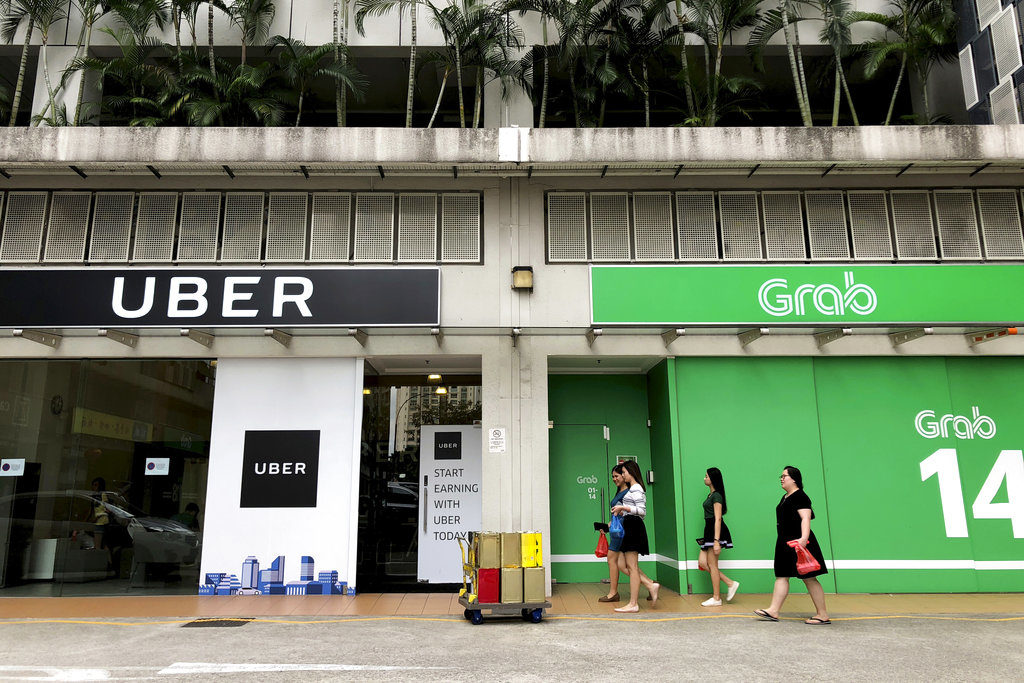
Office workers walk past Grab and Uber offices during their lunch hour Monday, March 26, 2018, in Singapore. Grab, a fast growing Southeast Asian ridesharing, food delivery and financial services business, said Monday that Uber will take a 27.5 percent stake in it and a seat on its board as part of the deal. (Photo WONG MAY-E / ap)
With Uber expected to fold under its rival ride-hailing firm Grab next week, the Philippine antitrust body has urged both companies to wait for a review before completing the deal that would give Grab a “virtual monopoly” in the market.
The Philippine Competition Commission (PCC) said that it was considering to review the deal regardless if the transaction fell under the current notification rules for mergers and acquisitions (M&As).
This developed days after Grab said it would acquire Uber’s operations in Southeast Asia, calling it the biggest acquisition by a Southeast Asian internet company. Grab said the Uber app, which provided an alternative to many Filipinos suffering from worsening public transportation services, would no longer be functional from April 9 onward.
“PCC recognizes that the exit of Uber in the Philippines will put its rival Grab in virtual monopoly in the ride-hailing market until the new players come into operation,” the antitrust body said.
PCC, which reviews business deals and sees which ones are anticompetitive, said that its officials were scheduled to meet with Grab and Uber representatives yesterday. It was not clear if the PCC statement preceded or followed that meeting.
The acquisition would likely have a “far-reaching impact on the riding public and the transportation services,” according to PCC. In light of this, the competition watchdog said it was looking into the deal “with the end view of potentially reviewing it for competition concerns.”
During the review, PCC would evaluate how certain factors would play out after the acquisition. These factors include price increases, quality of ride-hailing services and the likelihood of having other transport network companies (TNCs) compete in the market.
PCC said the review could happen in two ways: Through both parties submitting the deal for review if certain requirements are met, and through PCC opening a review on its own, even if the notification requirements for M&As were not met.
Notifiable transactions are M&As that meet a certain threshold in terms of value and assets. A notification is required when both standards are met: One of the companies in the deal is worth more than P5 billion, and the aggregate value of the assets of the acquired company exceeds P2 billion.
Both ride-hailing firms could not act on the deal without PCC approval, assuming that the transaction is notifiable. As of press time, PCC said that it did not know yet the terms and conditions of the deal.
But even if it was not notifiable, “Grab and Uber are urged to allow a voluntary review to take its course before consummating to minimize the need to unscramble the deal if found to have anticompetition concerns,” PCC said.
Nevertheless, PCC called the consultation with the TNC representatives as a “sign” of willingness to comply to the Philippine Competition Act.